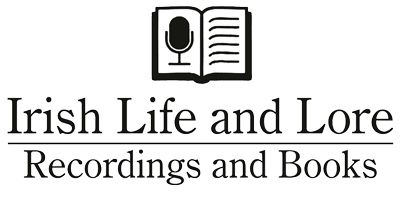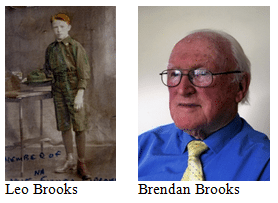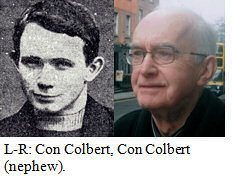John Bellingham begins by speaking about his family home which was built in the 1830s by his great-grandfather, William Bellingham. He explains the reasons why the family moved from Ravensdale in Co. Kildare to Howth, and how his great-grandfather acquired the land on the peninsula. The discovery made by his parents during renovations to the house is described. William Bellingham was a farmer at Ravensdale, and the land he farmed was subsequently owned by the Bruton family. On William Bellingham’s death, Arthur D’Arcy, his second youngest son and John’s grandfather, inherited the Howth property. Arthur’s wife, Nannie Hone, was a relative of artist Nathaniel Hone. Arthur Bellingham died when he was quite young. Stuart Bellingham was educated in England and John explains that prior to 1917 Ireland operated on Dublin time, thus the GPO in Dublin was 25 minutes in time behind the GPO in London. His father told him that there would be an announcement on the ferry to England about changing the time on one’s watch. Stuart Bellingham studied architecture at Trinity College Dublin, and prior to his graduation he joined the Royal Artillery regiment at Kilkenny. He was commissioned at the beginning of WWI. The Howth gun-running of 1914 is recalled. John explains that on the day the Asgard sailed in, his father was in his dinghy in Howth Harbour. The human chain formed to unload the rifles, which included his father, is described. He thinks that his father joined up in 1913 and may already have been a serving British officer at the time of the Howth gun-running. The ignorance by the authorities of the event is mentioned. Stuart Bellingham’s godfather was Andrew Jameson who lived in Sutton House in Howth, and John mentions the gun-running at Larne into which Stuart was drawn on the orders of Andrew Jameson. This event occurred at night and was much better planned in that the rifles were never recovered by the authorities. Stuart’s role was again to help with the unloading of the guns. John feels that his father had no political ideals and that these events were just ‘good fun’. Not long afterwards he was in the trenches in France. John is of the opinion that his father probably became bored with his studies and joined up as an alternative employment. He was gassed in the trenches and was sent back to Ireland to serve on the staff at Dublin Castle in 1917. The Rising was over, but following the executions the mood of the people had become hostile. The point of view of soldiers who had fought against the Germans and observed the struggle for Irish independence is considered. John recalls a ferry which ran from Kingstown to Howth and on to the railway system, and says that Howth appeared to have been an oasis of peace, as no incidents occurred on the peninsula. He discusses his father’s presence at the handing over of Dublin Castle to the Irish Army after the signing of the Treaty in 1921. Stuart had been ADC to General Neville Macready, who was then appointed Governor of Gibraltar. Stuart travelled with him and John describes his father’s role there and also in North Africa. The curious connection between Michael Collins and some captured rifles in North Africa is explained. Major Stuart Bellingham left the army the 1930s as he wished to return to Ireland to farm. John describes his father’s memory of the Mount Street group of British intelligence officers whom he described as an obvious target. His father told him that the shootings at Croke Park on Bloody Sunday had an element of revenge for these murders. John recalls a meeting between his father and the organiser of the Ashtown ambush many years after the event. Stuart had been responsible for the security of Viceroy Lord French on that occasion, and at the meeting Dan Breen and Stuart Bellingham compared notes. John considers the reasons why the IRA entered negotiations for the Treaty in 1921, and it is his opinion that the War of Independence did not result in a military victory but rather that a political decision was made by Lloyd George. He thinks that this is the reason why de Valera did not travel to London. Stuart Bellingham was serving abroad during the Civil War, and he felt that what happened in Ireland at that time was much worse than during the previous Troubles. John reflects on his father’s opinion on the gaining of independence by the Irish, explaining that he distrusted politicians but had rather conservative views on life. He thought of the Black and Tans as hardened men, and his point of view was that if the IRA could play dirty, then the Tans could play in an even dirtier manner.

John S. Bellingham (b. 1929)
John S. Bellingham (b. 1929)
€10.00 – €20.00
Additional information
| Type: | MP3 |
|---|---|
| Audio series: | The 1916 Rising Oral History Collections |
| Bitrate: | 128 kbps |
| Download time limit: | 48 hours |
| File size(s): | 42.59 MB |
| Number of files: | 6 |
| Product ID: | CD191602-001 |
| Subject: | Arthur Stuart Bellingham (Interviewee’s father) |
| Recorded by: | Maurice O’Keeffe – Irish Life and Lore |








